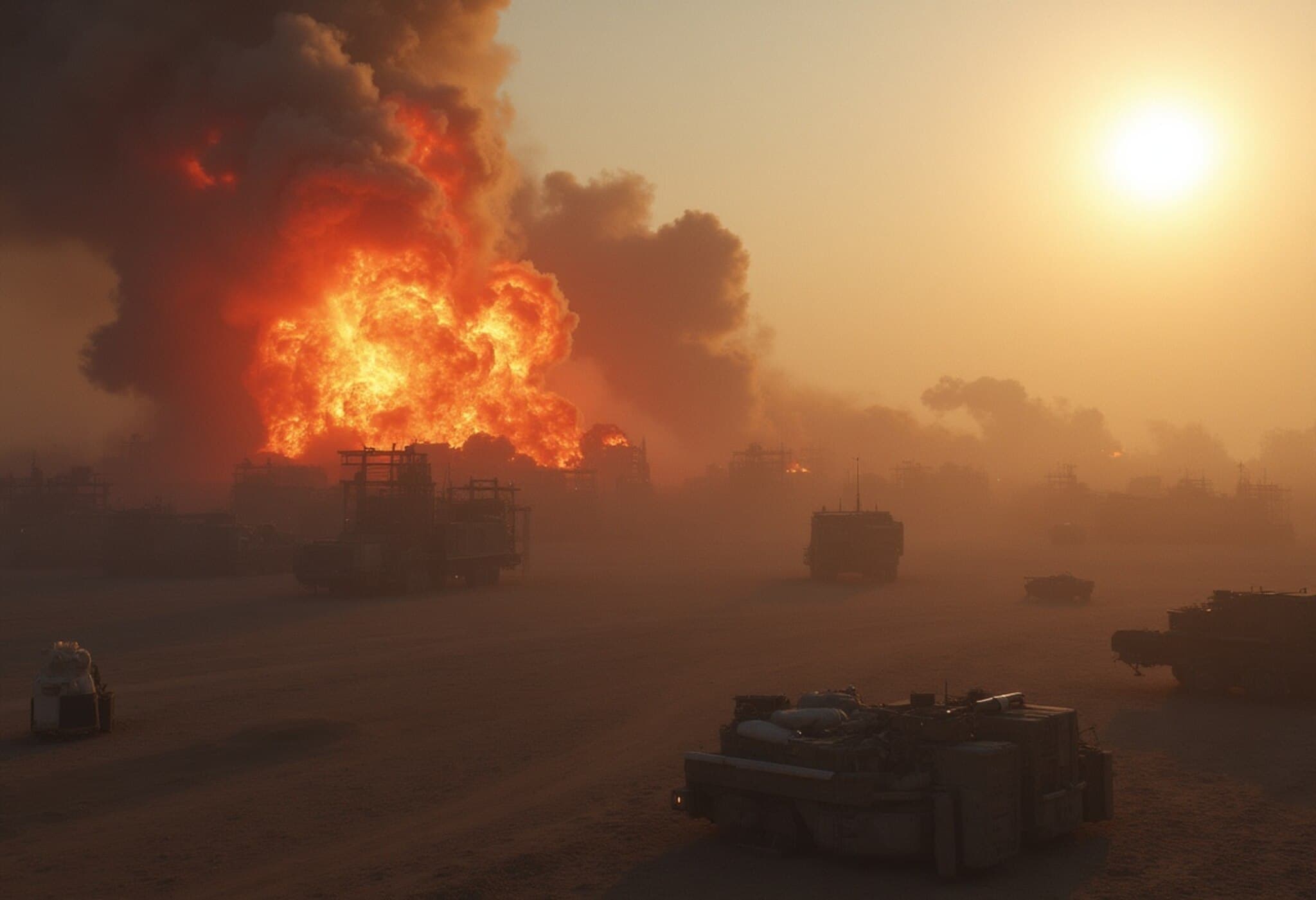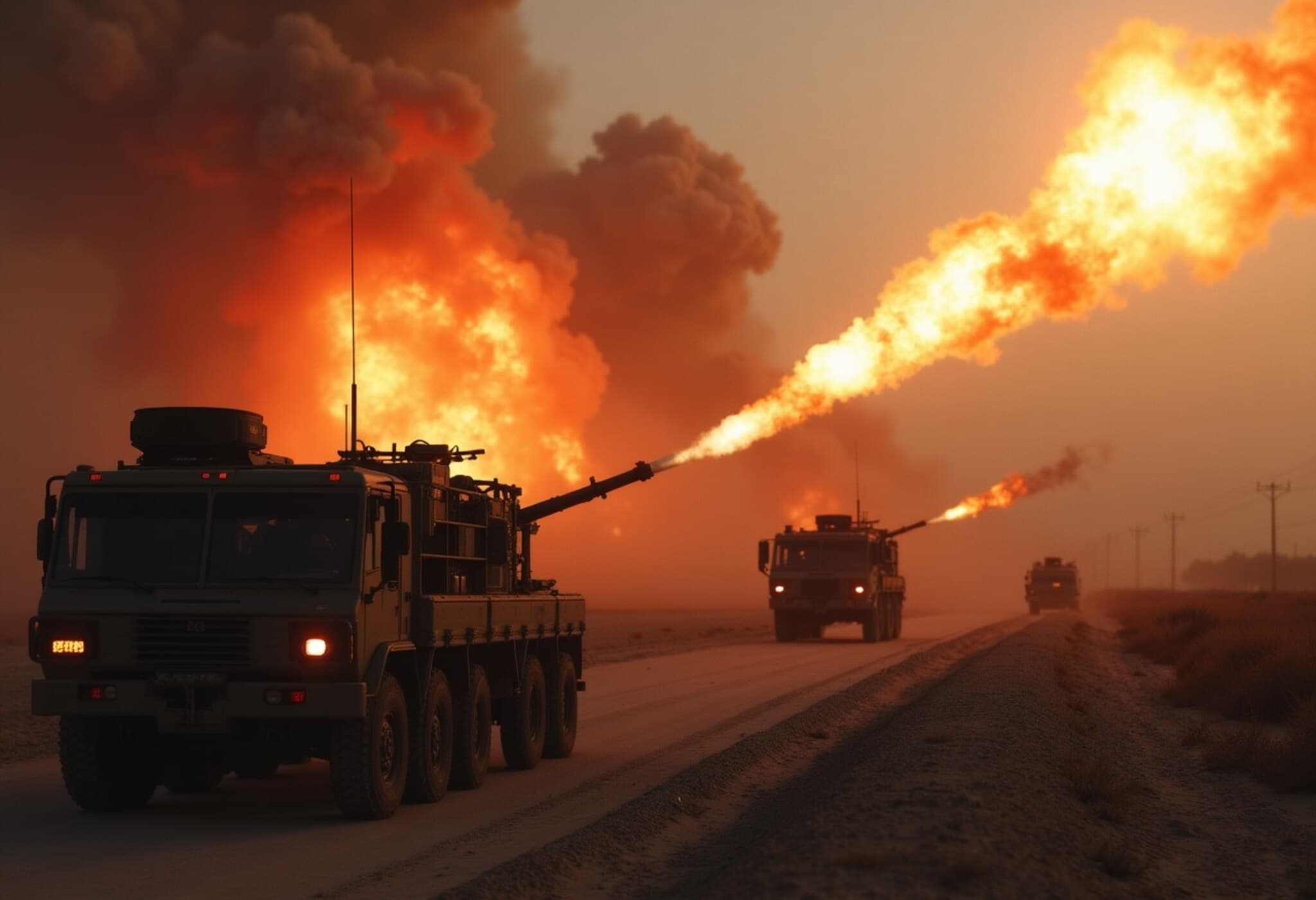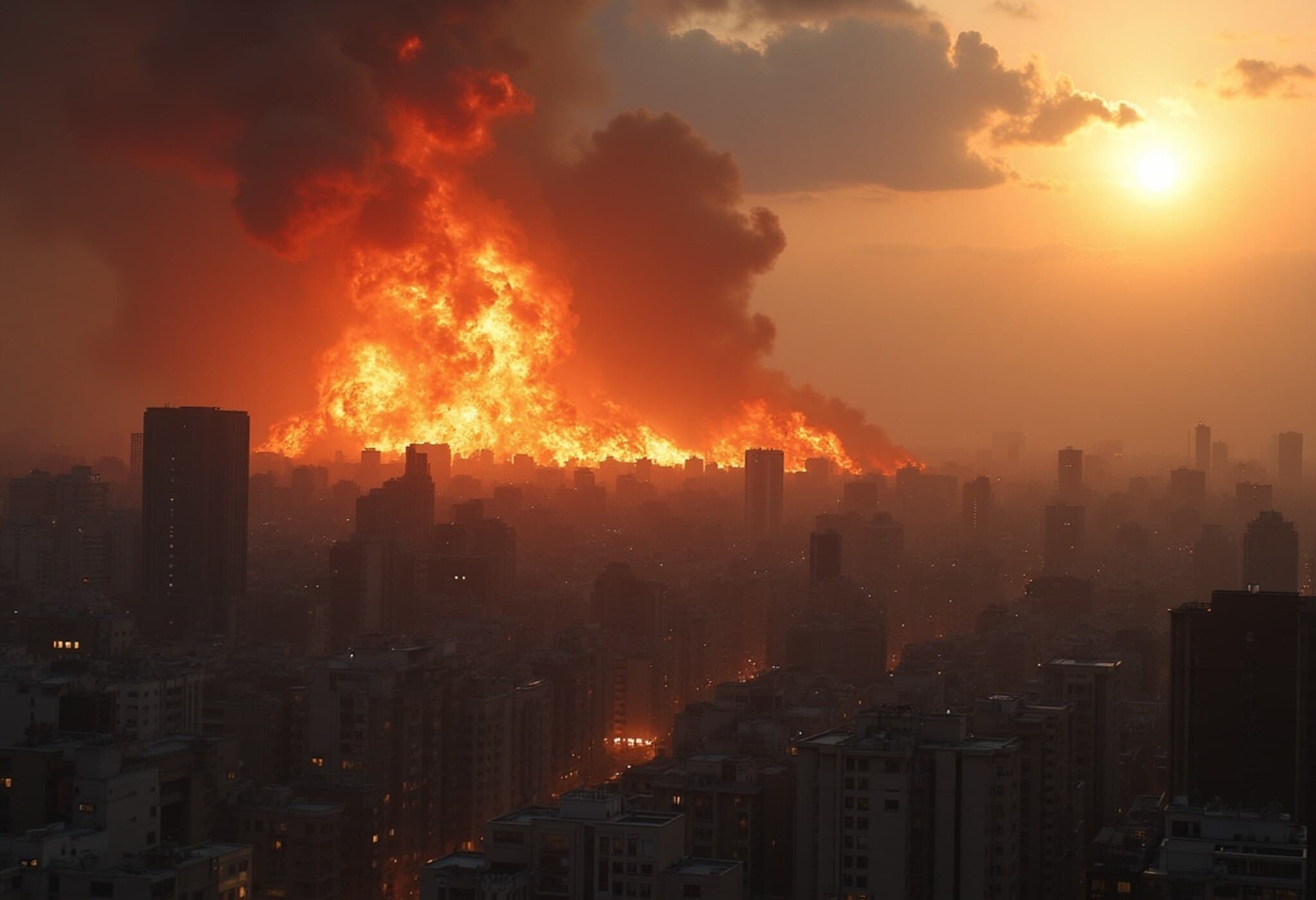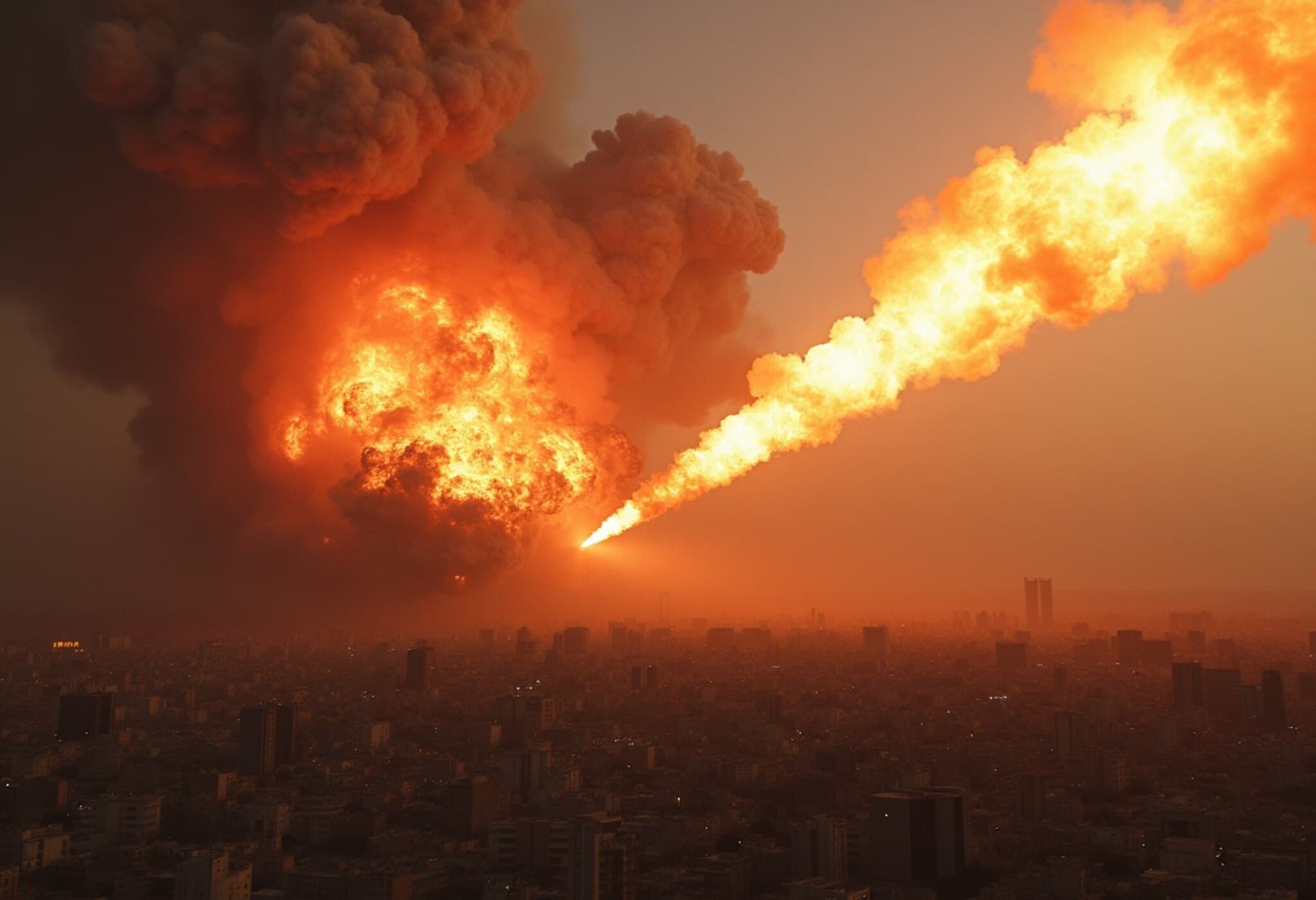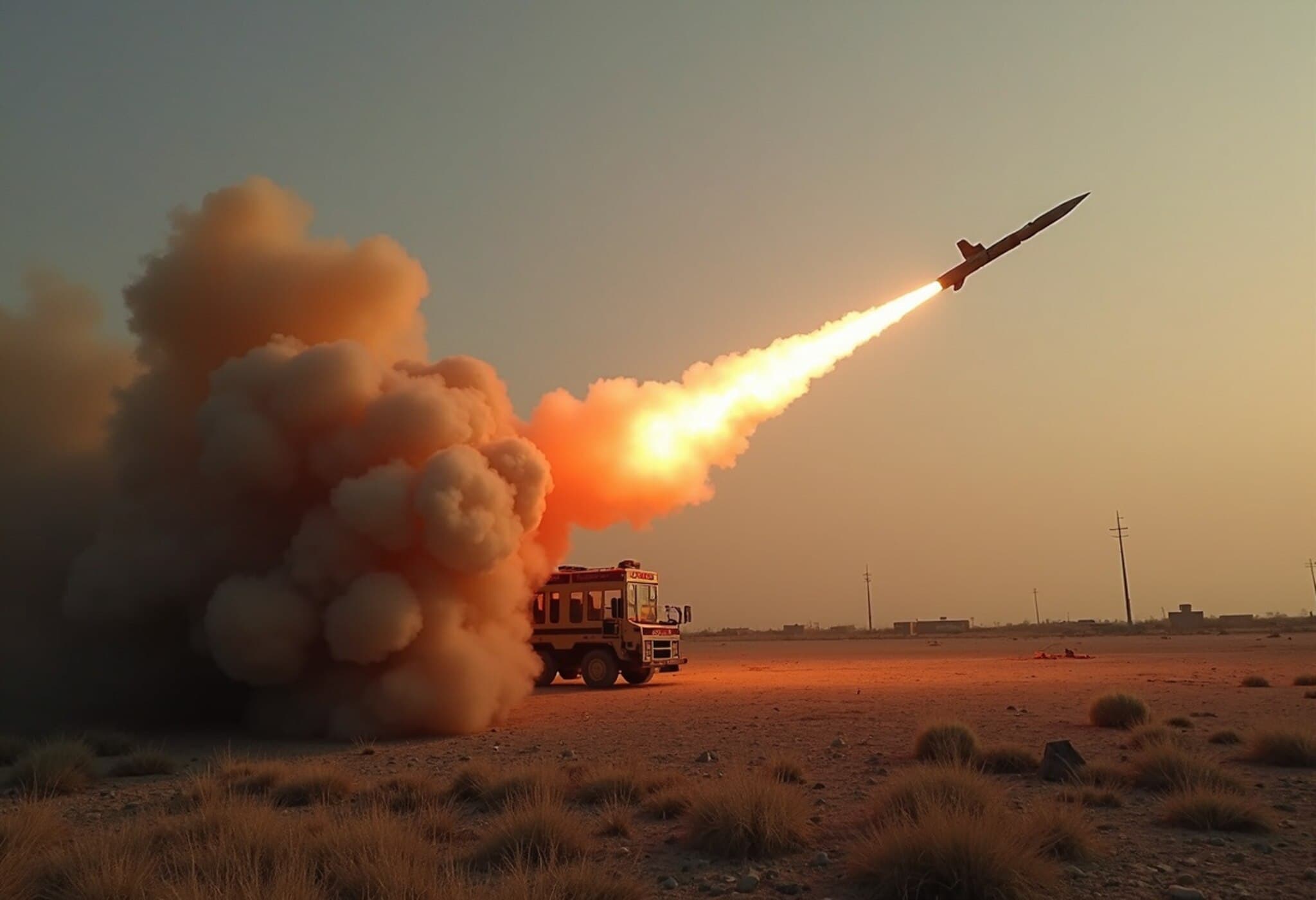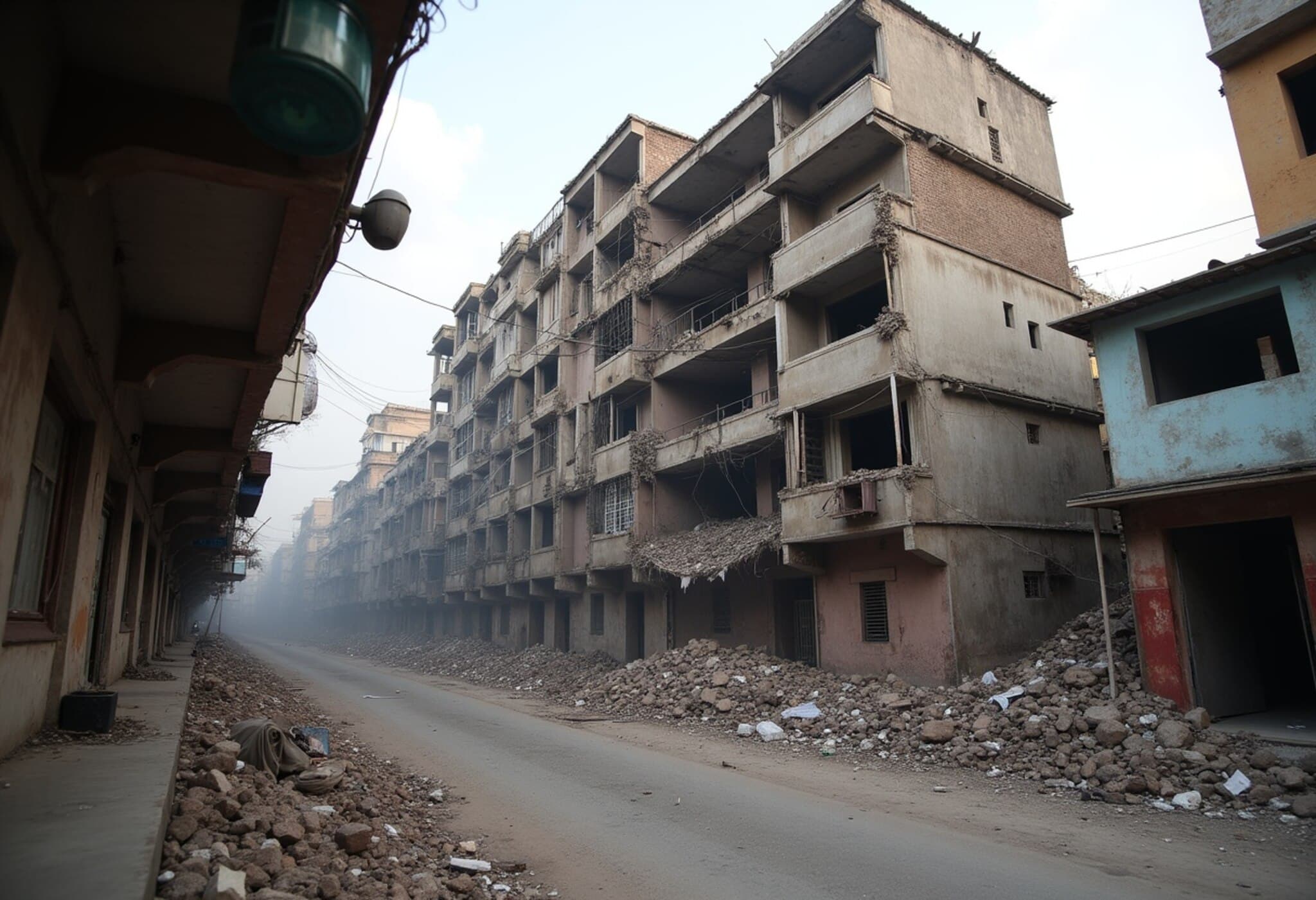Rising Tensions and the Reality on the Ground
As the dust settles from a brief conflict between Israel and Iran, the atmosphere in the West Bank remains fraught, with local tensions escalating sharply. In the Palestinian village of Kafr Malik, near Ramallah, masked settlers launched a violent raid at sunset, vandalizing property, setting cars ablaze, and throwing stones through windows. The aftermath reveals charred vehicles, shattered homes, and scattered bullet casings—a stark reminder of the ongoing volatility.
Among the injured is Hamde Hamayel, 27, wounded in the leg while defending his community against the settlers and Israeli soldiers. Just meters away, a firebomb narrowly missed a young mother nursing her newborn, demonstrating the peril faced by families daily. Tragically, three young Palestinians lost their lives in this outbreak, with disputed claims about the circumstances of the shootings stirring further controversy.
A Surge in Settler Violence
According to recent UN assessments, the West Bank has experienced a surge in settler violence, reaching its highest levels in two decades. In June alone, 95 Palestinians were injured by settlers. This surge follows heightened conflict in late 2023 and underscores the complexity of coexistence in a territory home to approximately 2.8 million Palestinians and 500,000 Israelis. The Israeli government’s use of biblical terms like Judea and Samaria to describe the region adds yet another layer to the contentious narrative surrounding these lands.
Lives Disrupted: Stories from Masafer Yatta and Beyond
Traveling southward through the rugged landscape brings encounters with Palestinians like Saeed Rabaa, a farmer living in Masafer Yatta who now resides in a converted cave after a settler assault resulted in the amputation of his leg. Rabaa recounts how settlers attempted to destroy his olive trees one fateful night, and how Israeli security forces instead shot him when he tried to defend his land.
The United Nations notes an average of four settler-related incidents daily, a sharp climb from previous years. While some Israeli groups downplay these figures and stress reciprocal threats from Palestinians, the asymmetry in power and protection is evident. Israeli settlers typically have armed protection and military support, contrasting with the Palestinian experience, which has seen over 1,100 deaths since 2023 in confrontations.
Escalation Ignited Within Israeli Society
The type of settler violence witnessed in Kafr Malik shocked much of Israeli society, especially after radical groups attacked a military base nearby, vandalizing vehicles and confronting soldiers. These actions reflect the growing boldness of extremist factions, such as the Hilltop Youth, once described by Israeli intelligence as a detrimental force within their own community.
Prominent political figures have voiced concern, with military and government leaders warning of potential widespread unrest if these trends go unchecked. While Prime Minister Netanyahu condemned the violence and pledged legal actions, critics highlight the influence of far-right politicians within the government who have empowered settler expansion and extremist views, challenging the government's willingness to curb settler violence.
On the Ground: Palestinian Families Under Siege
Ayman Soufan, a butcher in Burin near Nablus, illustrates the ordinary lives overshadowed by constant settler encroachment. Just meters from his home, settlers erected a tent on a hilltop, surveying his family property. The tent is an unauthorized outpost, but its presence signals ongoing harassment including stone-throwing at his children, drone surveillance, and direct intimidation by settlers who sometimes curse religious figures to provoke fear.
His home, fortified with barbed wire and guarded by a police dog, feels more like a fortress. Nights are sleepless, with Ayman and his brother taking shifts to watch over the property amid uncertainty and fear for their safety.
The Persistent Spirit of Resistance
Further stories from the region speak of ongoing attacks on vital olive groves, a symbol of Palestinian identity and livelihood. Maher Ebder, 58, recently beaten by masked settlers, laments the relentless theft of his land and resources that began with the rise of settlements in the 1980s.
Communities like Beita have become emblematic of determined resistance, deploying homemade alarms and coordinated communication networks to protect their homes. Local residents like Mohamad Maale, who recently endured gunshot wounds during clashes, vow to continue teaching future generations to stand their ground.
Despite grave risks and mounting pressure, these families remain resolute: their connection to the land is unbreakable and their fight to maintain their homes unwavering.











